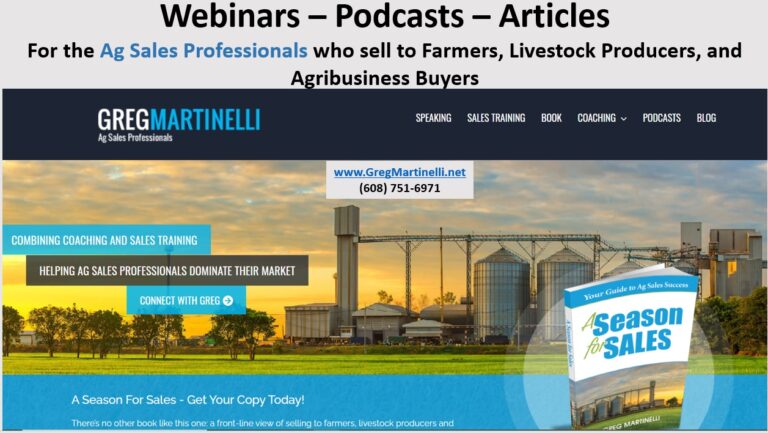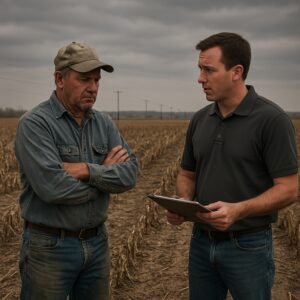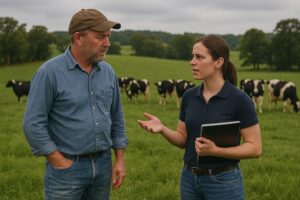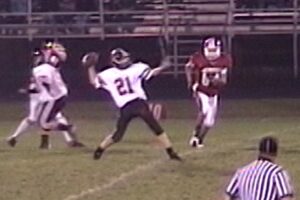Safety for the Ag Sales Professional
With our general manager in earshot, it would always bring some mild humor to our day, when I would ask loudly, “Hey, where are the keys to the train?” This usually led to his exclamation, “Sales managers don’t drive trains!”
Most kids are in awe of machinery. Especially big machinery we don’t see every day, like trains, combines, and tractors. As we grow older, we don’t really grow out of this amazement. Being new to the grain business, I was very interested to see that we had our own train engine. Watching it move cars back and forth under the spout, I wondered what it would be like to actually ride on and potentially drive it. Knowing enough about the work world and our culture of safety, I knew that as a salesperson, I would never actually be allowed to operate the train. However, it did provide a great opportunity to have fun with our manager. It’s been many years since those days, but recently running into my old manager this week, reminded me of safety at work. More specifically, safety with regards to the Ag Sales Professional.
In any production facility, safety is a very important topic, as it should be. There are many ways that people can get hurt and it’s the responsibility of everyone to foster a culture of safety. Unfortunately, that safety culture ends when employees leave the production facility and head out, like salespeople do every day. The interesting thing is the production facility is mostly a closed environment where conditions and actions can be controlled. As an Ag salesperson, you journey into a world where there is very little control: other drivers, weather, livestock. We are at risk in many ways just by being on the job in our territory.
Below is a list of some things that “a friend of mine” or I either did or saw. I encourage you to take a few moments in your next meeting and talk about them. Add your experiences around these situations. Let your peers know where you see potential accidents or unsafe areas in your sales role.
- Driving
- It goes without saying – put down the phone, buckle up and stay alert. But here are some other areas that I see happen every day while on territory:
- Merging – let them in. It’s 15 feet. Do you really need to hold onto that position in traffic or could you just back off a little and let them in? I see semi and car merger problems every day as one won’t let the other in.
- In a hurry – get better at planning. If you’re always running late, try to become a professional and plan your time better. Call ahead and see if it’s ok to be 15 minutes late.
- Weather – if you’re in the north, it snows. You are not delivering a heart transplant. So, it will wait until they clear the roads. I’ve heard many salespeople brag that they were out selling during a snowstorm. What a waste of time driving 20 mph down a road, risking an accident. Stay home, get your office work done and then get back out after the roads clear.
- Falling asleep at the wheel – For those of you in the agronomy or equipment business, planting and harvest can be very long days. Agronomy salespeople are running seed, getting fertilizer and herbicide products moved around and working all hours of the day and night. Equipment parts and service technicians are running hard as well at these times. I’ve seen too many of them over the years literally operating on no sleep. Exhausted, these folks are at the wheel of their pick up, often with a pallet of inventory in the bed. Pull over and take a break before your body does it on its own. Managers aren’t immune to this either. I knew a general manager that covered several states. He would drive all night, sleep for an hour at a rest stop and then work the next day in a new location. Risking an accident and I’m sure he couldn’t have been refreshed and of sound mind after only an hour of sleep in a car. It was safe that he pulled over for rest, but his planning was terrible.
- On Farm
- Machinery – A dairy salesperson was explaining how he got a silage sample by standing in the front bucket of a tractor while the customer elevated him up the face of a silage pit. This has a bunch of safety issues: bad footing, nothing to hold onto, the risk of entrapment from the silage giving way. Hearing this, his manager grounded the whole team from leaving the ground to get samples. The solution was to knock some silage down and get the sample versus risking a fall or entrapment.
- Livestock – Most people know to stay away from a bull. However, most livestock injuries I hear of come from cows that react to either protecting a calf or just have a problem with a person and attack them. Horses have safety concerns as well. As a new salesperson, I was selling feed to a barn full of fox hunters. Those folks that get dressed up, turn about 30 dogs loose and chase foxes through the woods on horseback. Sounded like fun to me and I wanted to connect with my customer. So, I agreed to join them on a hunt. As I told my sales manager of my plans, she promptly informed me that I wouldn’t be donning a red coat and chasing through the woods on horseback. Informing her that I had plenty of experience at those rental stables only made it worse. Fox hunts are on performance horses (not tired trail horses that follow the same route every day), with English saddles (no horn to hold onto) and conducted at full speed through the woods (no trails). Agreeing not to go, I understood her concern, but thought she was a bit over cautious. A couple months later, Christopher Reeves had his accident while riding a horse. It made me think of what could have happened.
- Trip and fall hazards – You are on unfamiliar ground when out on the farm or in a feed mill/grain elevator. Trip hazards and fall hazards are everywhere. I’ve seen open top ribbon mixers being used with operators working within inches of losing an arm, open ladders going up 50’ with no fall protection around them, forklift operators running full speed with their forks at waist level or worse yet, with a pallet in front of them blocking their view. The old saying “stay alert and stay alive” is good advice when on a farm or in a production facility.
- It goes without saying – put down the phone, buckle up and stay alert. But here are some other areas that I see happen every day while on territory:
- Lack of familiarity (the new guy) vs. Overly familiar (the experienced guy):
- These are two people on either end of the spectrum that are high-risk individuals. The new guy doesn’t know what he doesn’t know. Look out for him and make it a point to have a safety discussion with him. The experienced guy knows but has done it so many times that he thinks it can’t happen to him. After all, I’ve worn my seatbelt all of my adult life and never been in an accident. That doesn’t mean I don’t need to wear my seatbelt. But, that is the reasoning that over-familiarity brings.
It doesn’t take long to connect safety and a culture of safety to the bottom line, employee engagement, and productivity. If you have been around an accident, you know how much time and resources are lost. If you have been around a serious accident, you know the personal devastation it brings to an organization.
Fortunately, the stories from above all turned out ok. Unfortunately, hospitals and emergency rooms are full of people it didn’t turn out ok for. Don’t join them and help your co-workers stay safe as well.
If you found this to be helpful, forward on to someone you know who might also appreciate it.




